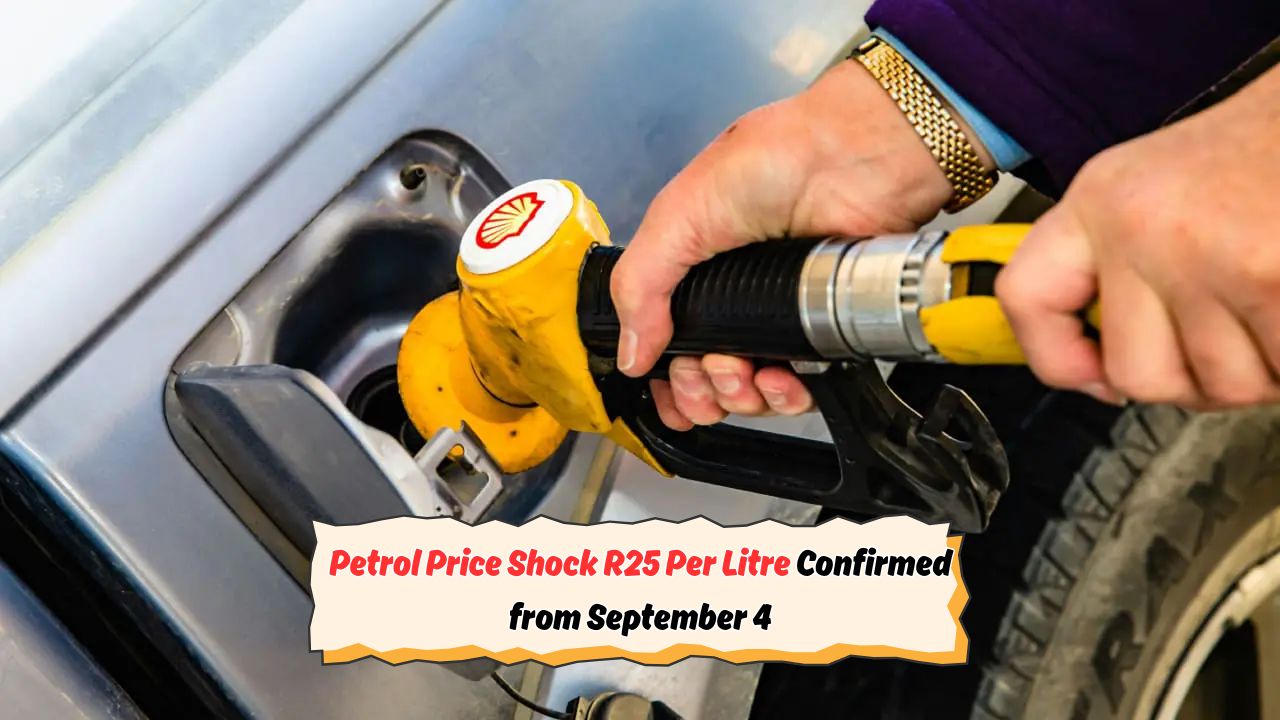New Fuel Cost – The announcement of petrol prices reaching R25 per litre from September 4, 2025, has shaken South African motorists and businesses alike. With global crude oil volatility, coupled with local tax structures and currency fluctuations, the impact on everyday life is becoming unavoidable. Transport costs are set to surge, leaving taxi operators, truck owners, and logistics companies with little choice but to hike fares and delivery charges. This change is not just about filling up a tank; it directly influences food prices, household expenses, and inflation across the nation. Many households already under financial pressure fear that this increase will further stretch their monthly budgets. Experts warn that the new fuel price hike could lead to another wave of protests, as ordinary South Africans struggle to keep up with the rising cost of living. The government has urged calm, stating that relief measures are being considered, but many remain skeptical whether these will be enough to ease the burden.
Breakdown of the New Fuel Cost
With the confirmation of R25/litre, analysts have broken down the contributing factors behind this steep rise. A significant portion comes from international oil price hikes, which have been climbing steadily due to geopolitical tensions and supply chain restrictions. On top of that, South Africa’s weakening rand against the US dollar has magnified the burden, as oil imports become more expensive. Government levies, road accident funds, and distribution margins are also baked into the final price, further pushing it upward. Fuel retailers argue that these levies should be reviewed urgently to protect consumers from unbearable costs. If the rand continues to slide, motorists may face further increases beyond September, making the R25/litre announcement just the beginning of more hardships in the fuel sector.
Economic Impact on Households and Businesses
The petrol hike will not only hit drivers but will ripple through the economy in ways that affect every citizen. Grocery prices are expected to rise almost immediately, as transportation of food and essentials becomes costlier. Small businesses, especially those dependent on daily transport such as delivery services, will find themselves squeezed between higher expenses and customers unwilling to pay more. For ordinary families, budgeting will become even harder, with petrol costs eating into money meant for school fees, medical expenses, and other necessities. Unions are already warning of potential strikes if wages are not adjusted in line with the inflationary impact caused by the petrol hike. Economists fear that if the trend continues, South Africa could face one of its toughest economic downturns in years, with fuel costs at the heart of the crisis.
Public Reaction and Possible Government Interventions
Public reaction to the R25/litre confirmation has been swift, with social media flooded by frustrated motorists calling the increase unbearable. Some South Africans are even considering reducing their use of private vehicles and shifting to public transport to cut expenses. However, this shift may put immense pressure on already overburdened taxi and bus services. The government has hinted at possible interventions, such as fuel subsidies or temporary levy suspensions, but nothing concrete has been announced yet. Citizens argue that unless meaningful action is taken, fuel hikes will continue to drag the economy into deeper hardship. Advocacy groups have called for immediate negotiations with oil suppliers, alternative energy exploration, and stronger currency management to prevent further crises. As the September 4 deadline approaches, the nation anxiously waits to see whether the government can cushion the blow or if South Africans must brace for an even tougher financial journey.
Looking Ahead: What Lies Beyond September?
While the confirmed R25/litre price is already alarming, industry experts warn that the worst may not be over. If global oil markets remain unstable and the rand continues its downward slide, prices could climb even higher by the year’s end. For many South Africans, this raises serious concerns about affordability and long-term sustainability of living standards. Alternative energy options like electric vehicles and solar-powered transport solutions are being discussed more seriously than ever before. Yet, these are not quick fixes for the majority of the population who rely daily on petrol. If the government fails to stabilize the situation, the rising fuel costs could trigger more protests, reduce consumer spending, and push the economy into a deeper spiral. South Africans are left with one question—how much higher can petrol go before daily life becomes unbearable?
